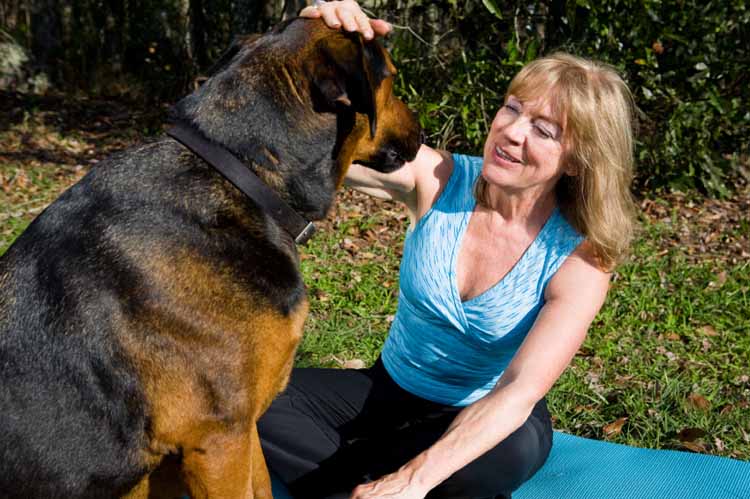Why Your Tone of Voice Matters in Dog Training
By Cara Lederman
Building a strong relationship with your dog is essential to successful dog training. Positive reinforcement is a style of training that strengthens the bond between you and your dog, and allows for clear communication. Clear communication and having an understanding of what your dog responds to best will help you greatly in your training.
Dogs respond best to a happy and upbeat tone of voice. This is critical when you need to redirect your dog. If your dog is barking at something, say his name followed by “That’ll Do!” If necessary and your dog is on a leash, walk backwards to assist your dog with turning his body so he can face you.
Once you have your dog’s attention, praise him and then distract him for a few minutes by practicing some known obedience cues. Barking is a self-rewarding behavior so using a happy tone of voice will attract him. Your dog will realize it is rewarding for him to focus on you. Below are scenarios where you should watch your tone.
Attacking Another Dog
When a dog is barking and lunging at another dog or person, it is common for owners to yell “No!” at their dogs. However, yelling usually doesn’t make the dog stop and turn around to focus on the owner. The dog may just think his owner is joining his barking to get the bad person or dog away.
Ruining Your Furniture
Another scenario is when a dog owner finds a chewed up pillow and calls his dog over to yell “Bad dog!” Many think their dogs understand chewing the pillow was bad because of their dogs’ response, which is usually cowering with his tail between his legs or submissively lying on his back. Unfortunately, the dog doesn’t make the connection between his owner’s anger and the chewed pillow—the dog is just responding to the tone of voice.
Playing with Other Dogs
Another important instance to use an upbeat tone of voice is when your dog is becoming too emotional when playing with another dog. What begins as appropriate play between two dogs can escalate into a fight if the dogs are not periodically separated and thus become too aroused. Before your dog gets to this level, use that happy voice to call him over to you. At that point, reward him and have him in a down-stay for a few minutes before returning to play.
Of course, always have a backup plan for these situations, such as a deterrent spray if you’re unable to redirect the dogs and a fight breaks out. Remembering to stay calm and confident when working with your dog brings great results. Dogs are sensitive to the emotions of their owners so use that knowledge when communicating with your dog. If you’re in doubt of your techniques with your dog, don’t hesitate to contact your local certified dog trainer.
How has using an upbeat tone of voice helped you train your dog? Tell us in the comments below!





